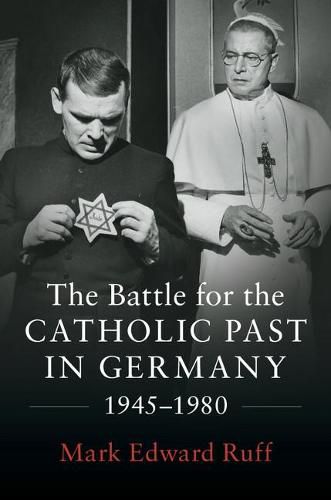Readings Newsletter
Become a Readings Member to make your shopping experience even easier.
Sign in or sign up for free!
You’re not far away from qualifying for FREE standard shipping within Australia
You’ve qualified for FREE standard shipping within Australia
The cart is loading…






Were Pope Pius XII and the Catholic Church in Germany unduly singled out after 1945 for their conduct during the National Socialist era? Mark Edward Ruff explores the bitter controversies that broke out in the Federal Republic of Germany from 1945 to 1980 over the Catholic Church’s relationship to the Nazis. He explores why these cultural wars consumed such energy, dominated headlines, triggered lawsuits and required the intervention of foreign ministries. He argues that the controversies over the church’s relationship to National Socialism were frequently surrogates for conflicts over how the church was to position itself in modern society - in politics, international relations and the media. More often than not, these exchanges centered on problems perceived as arising from the postwar political ascendancy of Roman Catholics and the integration of Catholic citizens into the societal mainstream.
$9.00 standard shipping within Australia
FREE standard shipping within Australia for orders over $100.00
Express & International shipping calculated at checkout
Were Pope Pius XII and the Catholic Church in Germany unduly singled out after 1945 for their conduct during the National Socialist era? Mark Edward Ruff explores the bitter controversies that broke out in the Federal Republic of Germany from 1945 to 1980 over the Catholic Church’s relationship to the Nazis. He explores why these cultural wars consumed such energy, dominated headlines, triggered lawsuits and required the intervention of foreign ministries. He argues that the controversies over the church’s relationship to National Socialism were frequently surrogates for conflicts over how the church was to position itself in modern society - in politics, international relations and the media. More often than not, these exchanges centered on problems perceived as arising from the postwar political ascendancy of Roman Catholics and the integration of Catholic citizens into the societal mainstream.